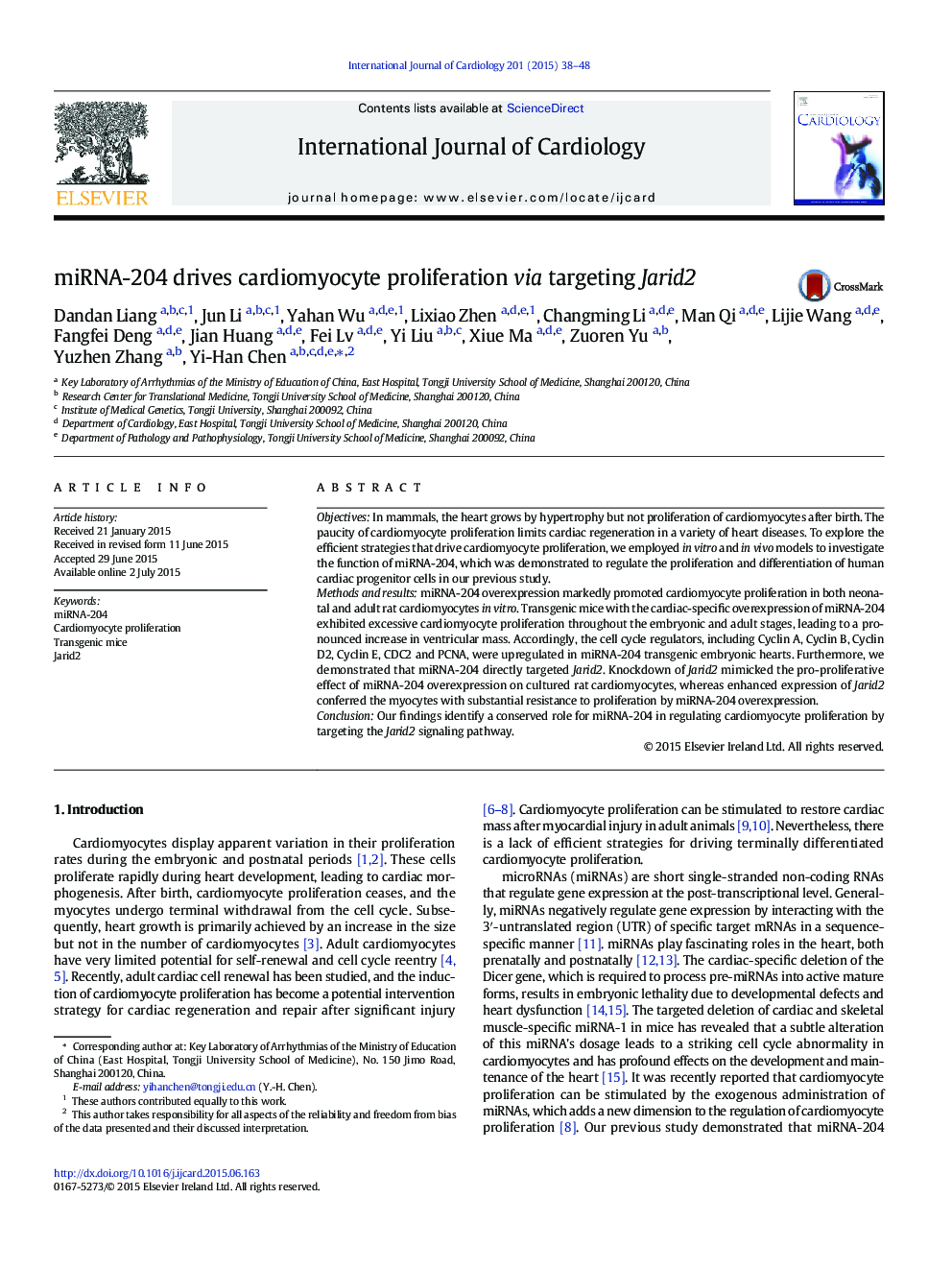| Article ID | Journal | Published Year | Pages | File Type |
|---|---|---|---|---|
| 5966309 | International Journal of Cardiology | 2015 | 11 Pages |
ObjectivesIn mammals, the heart grows by hypertrophy but not proliferation of cardiomyocytes after birth. The paucity of cardiomyocyte proliferation limits cardiac regeneration in a variety of heart diseases. To explore the efficient strategies that drive cardiomyocyte proliferation, we employed in vitro and in vivo models to investigate the function of miRNA-204, which was demonstrated to regulate the proliferation and differentiation of human cardiac progenitor cells in our previous study.Methods and resultsmiRNA-204 overexpression markedly promoted cardiomyocyte proliferation in both neonatal and adult rat cardiomyocytes in vitro. Transgenic mice with the cardiac-specific overexpression of miRNA-204 exhibited excessive cardiomyocyte proliferation throughout the embryonic and adult stages, leading to a pronounced increase in ventricular mass. Accordingly, the cell cycle regulators, including Cyclin A, Cyclin B, Cyclin D2, Cyclin E, CDC2 and PCNA, were upregulated in miRNA-204 transgenic embryonic hearts. Furthermore, we demonstrated that miRNA-204 directly targeted Jarid2. Knockdown of Jarid2 mimicked the pro-proliferative effect of miRNA-204 overexpression on cultured rat cardiomyocytes, whereas enhanced expression of Jarid2 conferred the myocytes with substantial resistance to proliferation by miRNA-204 overexpression.ConclusionOur findings identify a conserved role for miRNA-204 in regulating cardiomyocyte proliferation by targeting the Jarid2 signaling pathway.
